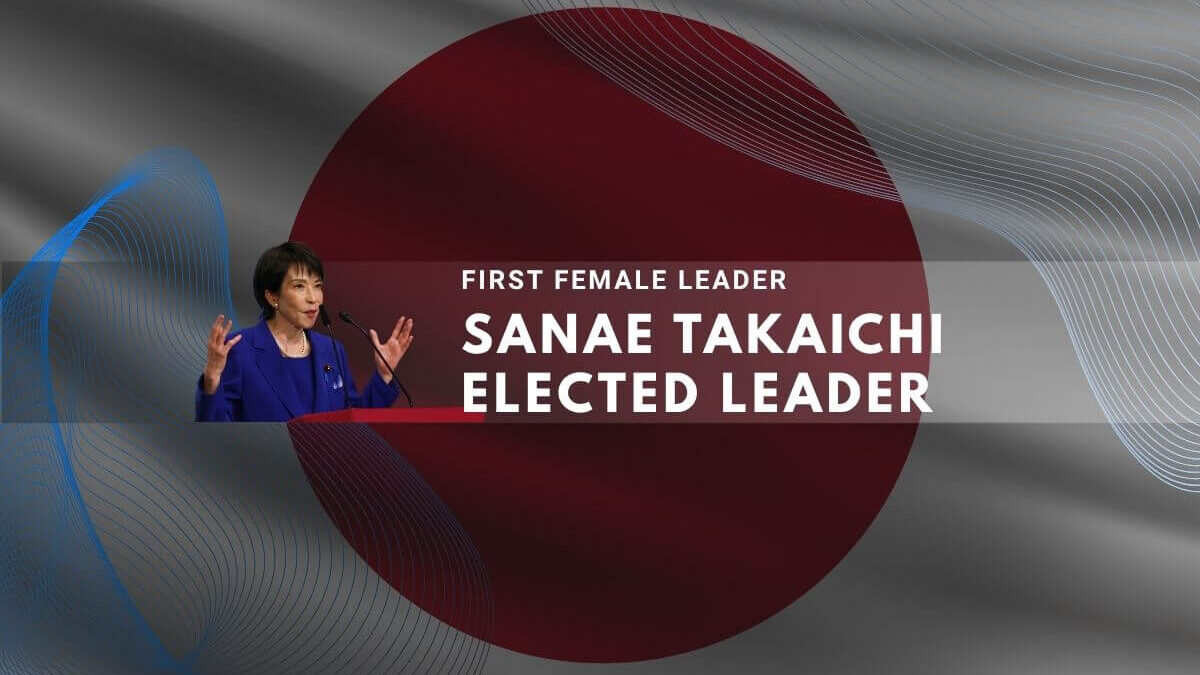Japan confirms Sanae Takaichi as prime minister following the LDP leadership election. This confirmation makes Sanae Takaichi Japan’s first female prime minister. Takaichi becomes Japan’s first female leader, marking a historic milestone in the country’s political history. [1]
Historic Gender Milestone for Japan
Japan ranks 118th among 148 countries in the 2025 Global Gender Gap Report published by the World Economic Forum. The country places last among G7 nations in gender equality metrics. Takaichi’s ascension to the premiership breaks a significant barrier in Japan’s historically male-dominated political landscape.[2]
Election Results and Voting Process
The LDP leadership contest began with 590 total votes split equally between 295 Diet members and 295 local party members. Takaichi and Koizumi led both tallies in the initial round. Under LDP rules, this triggered a runoff decided solely by the 295 Diet members. Takaichi secured 194 votes to Koizumi’s 101 in the final round.[3]
Path to Prime Ministerial Confirmation
Under Japan’s constitution, both chambers of the Diet must elect the prime minister through a joint session. The LDP maintains a majority in the lower house despite losses in recent local elections. On October 10, 2025, the Diet formally confirmed Takaichi as prime minister at a joint session in Tokyo.[4]
Policy Priorities and Diplomatic Challenges
Takaichi aligns closely with the late former prime minister Shinzo Abe’s approach to national security and economic policy. She advocates for increased defense spending, enhanced cybersecurity infrastructure, and fiscal stimulus measures to boost economic growth.[5]
Her repeated visits to the Yasukuni Shrine, which honors war dead including convicted war criminals, may strain diplomatic relations with China and South Korea. Both nations view the shrine as a symbol of Japan’s militarist past.[6]
Key Challenges Facing the Administration
Takaichi inherits several pressing challenges as she assumes office:
- Restoring public trust following the LDP funding scandal that damaged party credibility
- Managing economic recovery amid persistent inflation and sluggish wage growth
- Balancing strong security ties with the United States against regional tensions with China and North Korea
- Addressing Japan’s aging population and declining birth rate
- Implementing structural economic reforms while maintaining fiscal discipline
Leadership Transition and Cabinet Formation
Outgoing Prime Minister Fumio Kishida, who served since October 2021, announced his resignation in August 2025 following declining approval ratings and the party funding scandal. Takaichi formally assumed her roles as LDP president on October 4 and prime minister on October 10. She is expected to announce her cabinet appointments within the coming week.[7]
Sanae Takaichi becomes Japan’s first female prime minister, achieving a historic milestone. She becomes Japan first in gender representation at the highest political office. As Japan first female leader, Takaichi faces both domestic expectations and international scrutiny while guiding policy and security decisions.



